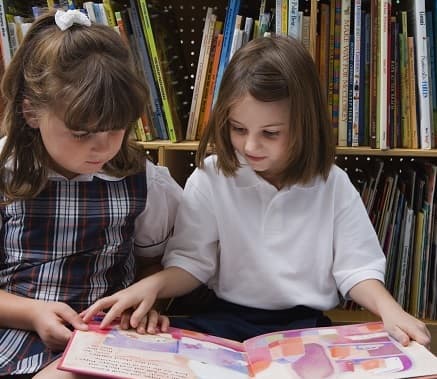| Back to Back Issues Page |
 |
|
The value of libraries, from Kabul to Canada December 17, 2019 |
The Enduring Value of Libraries, from Kabul to CanadaHave libraries made a difference in your life? Here are three stories about the many ways libraries can make a difference. They can reach out to kids with limited access to books or safe spaces. They provide an inviting place for older—or younger-- people who would otherwise be isolated. They offer information, technology, and help using it to people who can’t figure it out, or afford it, on their own. (I worked for a library system for years, and I have seen libraries be all that, and more. In one hot city, they were also a place homeless or marginalized people could get out of the heat and rest…)
Vocabulary Practice (Quiz)For this newsletter, instead of trying to explain what some of the important words in these articles mean, I’d like to offer you a quick quiz instead. Here are several words used three or more times in these articles. For each, I’ll quote a sentence or part of a sentence, then ask you to choose which of three meanings comes closest to its use. Answers are just before the end of the newsletter.1. “…the children receive emotional support to help them cope with the specific challenges they face.” In this sentence, ‘cope’ means most nearly A. succeed in spite of B. deal with their situation & manage their feelings C. conquer and overcome 2. In the same sentence, ‘challenges’ means A. circumstances B. opportunities C. difficulties 3. “In neighborhoods where crime is high or the social infrastructure is depleted, old people are more likely to stay home, alone…” Here ‘infrastructure’ refers to A. the basic systems that keep a city or neighborhood functioning B. the social services provided by the library C. the buildings of the neighborhood 4. “The district is one of the poorest in the city, with about half the residents living below the poverty line.” ‘Residents’ mean A. People who live in the district B. People in the area who are poor (“living below the poverty line.”) C. Small businesses in the district 5. “Social scientists sometimes call East New York socially isolated, because its peripheral location and limited public transit options restrict access to opportunities in other parts of the city…” Here access means A. limited opportunities B. transportation C. ability to reach or get Warmly, Catherine Simonton, EnglishHints.com Quiz Answers1. “…the children receive emotional support to help them cope with the specific challenges they face.”In this sentence, ‘cope’ means most nearly B. deal with their situation & manage their feelings 2. in the same sentence, ‘challenges’ means C. difficulties 3. “In neighborhoods where crime is high or the social infrastructure is depleted, old people are more likely to stay home, alone…” Here ‘infrastructure’ refers to A. the basic systems that keep a city or neighborhood functioning 4. “The district is one of the poorest in the city, with about half the residents living below the poverty line.” ‘Residents’ mean A. People who live in the district 5. “Social scientists sometimes call East New York socially isolated, because its peripheral location and limited public transit options restrict access to opportunities in other parts of the city…” Here access means C. ability to reach or get Let me know if you enjoy this quiz. (I especially would like to know if you (A) prefer a quiz or (B) would rather just read explanations of key words. If you really don’t need either (C), please let me know that too. P.S. If you don’t like to open links in emails, you can go to the EnglishHints Back Issues page and open them there. It’s https://www.englishhints.com/English_Detective-backissues.html A note if you get gmail: Have you missed any issues of English Detective? if you find English Detective in your Promotions box, you can move it to your Primary box (if you want) by clicking on it and dragging it there, then clicking Yes when asked if you want to always get it in the Primary box. If you are not already getting English Detective, you can subscribe by completing the form here. (It's free!) Also, you can reach me by mail at 1752 Driftwood Drive, El Centro, CA 92243, USA. |
| Back to Back Issues Page |
